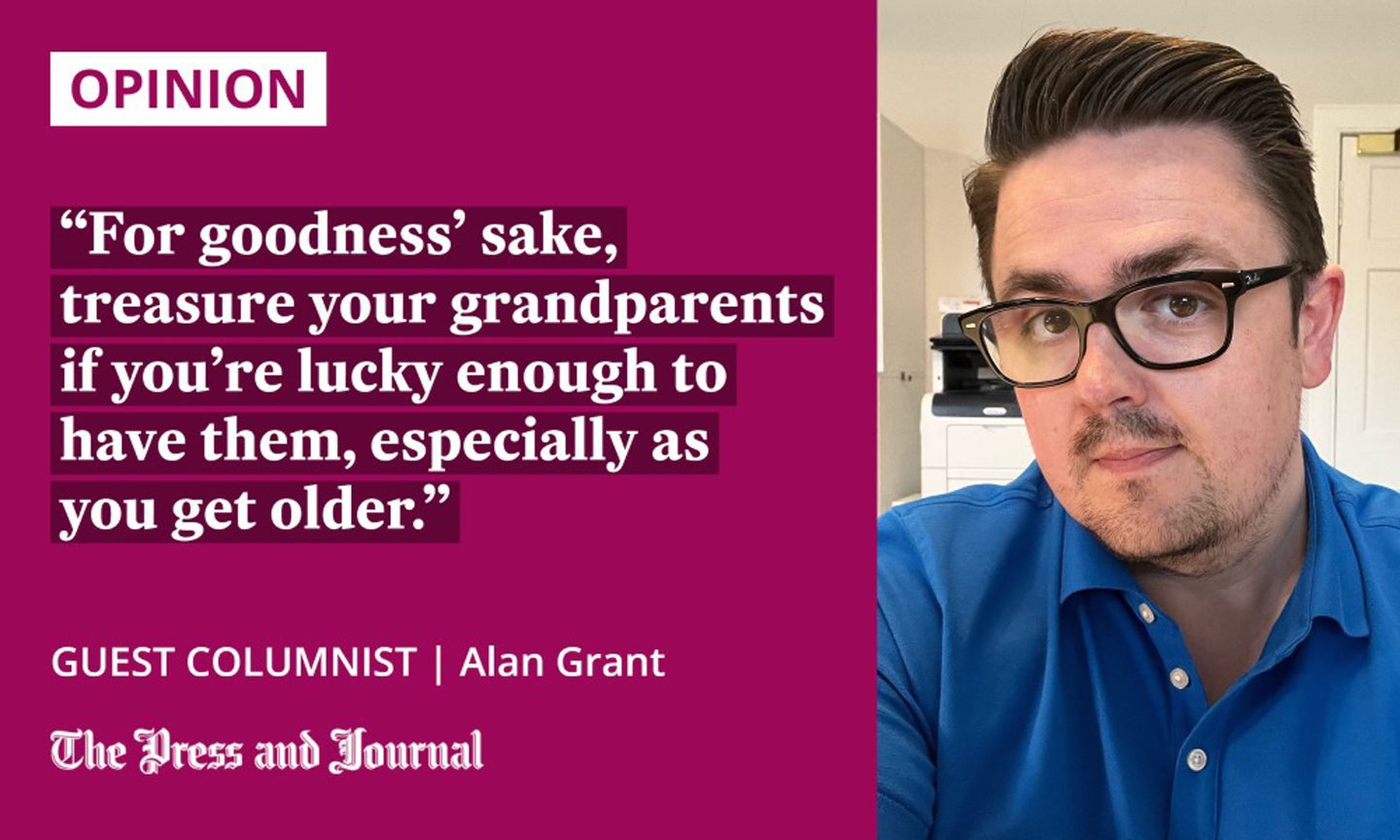It’s hard to lose a member of the family. When someone close to you dies, a whole process kicks in and there is no fast forward.
You have to tell others, organise time off work, endure politely other people’s repetitive consolations, and there’s the whole sorry business of a funeral and wake to organise and get through. It’s a lot.
But, then, there is the part less spoken about – the next year.
It’s “the year of firsts”. It includes such notable occasions as the first time their birthday comes around, their first absent wedding anniversary, the first Christmas without them, and other significant dates. It’s hard. Grief, it turns out, isn’t specifically for Christmas, but it will show up then, too.
I broach this morbid subject as the first anniversary of the death of my beloved grandfather, Jim Grant, has just come and gone. It has been tough, as have the other firsts since his long, happy, and well-lived life came to its peaceful, dignified, and compassionately managed end.
He was a wonderful human being. Clever, supportive, dedicated to his family, and with an inquiring mind and love of technology that made him still the only octogenarian I know who owned two iPads, two desktop computers and two laptops. I never knew why, his reasons were his. He was my grandad and I loved him deeply.

He was also a well-read man with a knack for putting a sentence together. At time of writing, I’m working my way though a memoir he wrote about his time serving as a national serviceman in Korea.
My eventual hope is that his work will be published posthumously, but we shall see. For this reason, I think he would approve of being mentioned in a column in this fine newspaper and of being the source of a provocative question.
Spend as much time with them as you can
We are living longer. My grandfather lived into his late eighties and lived well. He had a quality of life, late in life, that previous generations would have thought unimaginable. He drove a car until a few years before dying, could cook for himself until just before the end, and was in possession of all his marbles until the close.
One of the beacons of hope across our unhappy globe is the fact that this is becoming more common. People are living longer and are living better as they do so.
You will be surrounded by people who have lost their grandparents, and who would give anything to talk with them one more time
Of course, this comes with all sorts of issues to solve: pension provision, reforming the workplace, and the increasing cost of health among them. But these pale in comparison to the wonderful promise of more people experiencing the joy of having their grandparents later in life.
I currently have both my grandmothers still in my life and I realise how lucky that makes me, at 35 years old. However, as this hopefully becomes more common, I have some advice that I’d like to share.
For goodness’ sake, treasure your grandparents if you’re lucky enough to have them, especially as you get older. You will be surrounded by people who have lost theirs, and who would give anything to talk with them one more time.
If when (as is the natural order of things) they pass away before you, you can think about them and honestly tell yourself that you could not have spent more time with them, have nothing you wish you had told them, and had told them exactly how much you loved them, then you will gain a sense of peace that will help you deal with the grief and loss.
Having grandparents later in life is as close to a miracle as I’m willing to concede exists. The fact that, in the case of my grandad, I have no regrets about how my life intersected with his or about the amount of time we spent in each other’s company is of great comfort.
If you find yourself in a similar situation, please, do spend time with them. You won’t regret it later.
Alan Grant is a writer and political commentator. He also works in public relations, public affairs, and communications

